#i misspelled secretly the first time and it was driving me crazy
Text
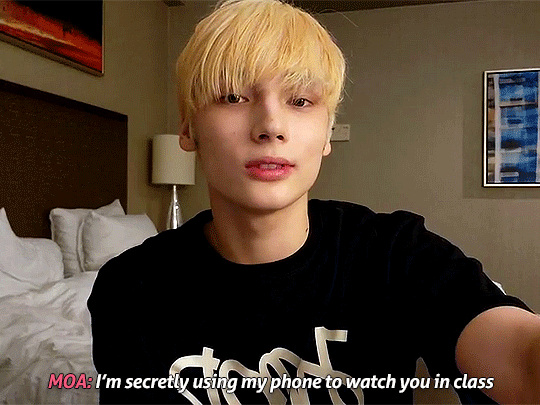
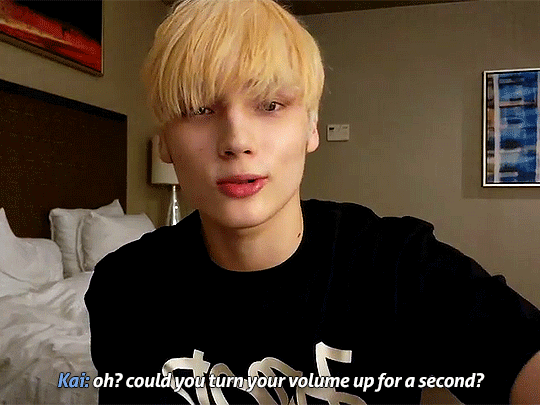
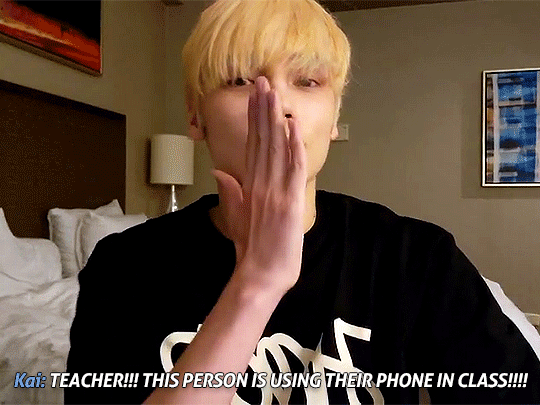

kai says stay in school kids (trans cr)
#moacentral#moasource#txt#tomorrow x together#hueningkai#alitracks#userfairy#useryeonjuins#usersemily#isaishi#noa.gifs#noa.post#i misspelled secretly the first time and it was driving me crazy
463 notes
·
View notes
Text
SOURCERY (1988) [DISC. #5; RINCEWIND #3]
“It’s vital to remember who you really are. It’s very important. It isn’t a good idea to rely on other people or things to do it for you, you see. They always get it wrong.”
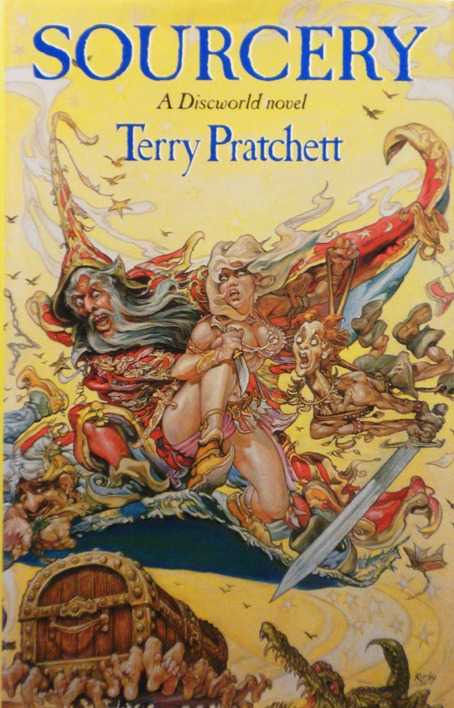
Rating: 7/10
Standalone Okay: Yes, but more fun with context.
Read First: Yeah.
Discworld Books Masterpost: [x]
* * * * * * * * * *
Magic! Sourcery! Death! The apocryphal apocalypse, the Apocralypse! Puns! A cowardly wizard who can’t do magic and who takes it in turns to run away from, and then toward, and then away again from danger!
Over the course of the story, Sourcery literally and figuratively rewrites reality and magic across the Disc.
Sourcery feels a lot like a second start for the Discworld series. Much like The Colour of Magic, it introduces many of Discworld’s major locations, characters, and themes. It even stars Rincewind, in all his cowardly, unmagical glory. But unlike The Colour of Magic, Pratchett has locked down not just the look of the place, but also the feel of it. The Discworld, as a setting, balances on the knife’s edge between absurdist humor and poignant sincerity, and it makes sense that it took Pratchett a couple novels to get the blend just right. I feel like the first five books in the series mark a slow path to the Discworld that the rest of the novels will occupy comfortably, starting with the purely satirical high fantasy nonsense of The Colour of Magic, shifting through the more original concepts of Equal Rites and Mort, and finally settling in place with Sourcery.
With the arrival of Coin, the powerful Sourcerer—who unlike a wizard is a source of magic, not just able to use the stuff—the balance of magic and nature shifts, wizards and towers rise and fall, and the Things from the Dungeon Dimensions briefly push very, very close to the Discworld before they’re driven back.
By the time the story ends, magic is revitalized and permanently changed through the arrival (and then departure) of Sourcery, and the balance of power between city-states is permanently altered. In fact, it is strongly implied that because of these magical battles, some of these places have entirely ceased to exist.
Whoops!
We get a solid cast of characters for this one, coming together and splitting apart again for some really well-paced storylines running alongside one another. There’s Conina (daughter of Cohen the barbarian, hairdresser by profession and warrior by genetics) and Nijel the Destroyer (son of a grocer, but he read a book about how to be a barbarian once), the Unseen University wizards (who put all their skill points into magic powers and absolutely none into common sense), the Librarian and his flock of books (the books literally fly like birds to escape a fire in the Library), Coin the Sourcerer (parented badly by the ghost of his dead father which is possessing his magical staff (no, really)), Death and the other Horsemen of the Apocralypse, etc., etc. Even the Archchancellor’s Hat has a pretty solid role to play.
And, of course, we’ve got our main protagonist, beloved run-away wizard Rincewind.
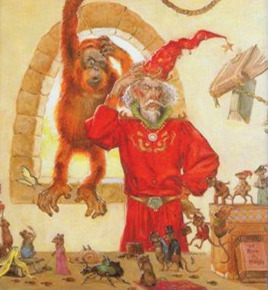
Western media trains audiences to see and expect cowardice as a negative trait, usually given to villains, traitors, and failures. But although Rincewind’s cowardice is as much a defining characteristic as his lack of magical ability and his misspelled hat, I see him as one of the kindest and most genuinely likeable protagonists on the Disc. (As opposed to my other faves: Vimes can be too intense, Vetinari too terrifying, and Granny is some unholy combination of both those things. Moist is, quite frankly, a little shit.)
Rincewind has ‘runs away a lot, usually from things that want him dead’ as his main character flaw, sure, but I can’t honestly fault him for that. Let’s be real—it’s just a logical continuation of the all-important survival trait, which Rincewind has in spades. And at the same time, he’s also knowledgeable, sarcastically funny, kind in his own way, and totally, completely harmless. It’s almost sweet, even, how utterly nonthreatening this man is. Like Coin the Sourcerer says: he’s like a funny little rabbit. How can you not love that?
I also love that Rincewind’s cowardice doesn’t stop him from doing what has to be done, even when—maybe especially when—no one else seems to be answering the call. Despite all the infinitely more powerful wizards up in the tower with the Sourcerer, it’s Rincewind who shows up with no magic at all, just a half-brick in a sock, ready to at least try to stop the inevitable unraveling of reality and destruction of the Disc. (I’m standing by my claim that Rincewind might be a terrible wizard, but an excellent accidental witch. See my post on Equal Rites for the distinction.)
Anyway, in the end, it turns out that it’s not Coin that’s the real problem, it’s his staff; Rincewind immediately turns to protecting Coin, a literal child. When he and Coin are pulled through to the Dungeon Dimension, Rincewind uses himself as a distraction so Coin can escape, even though it means he’ll be trapped there with terrible things that want him dead. The book ends with him still trapped in the Dungeon Dimensions.
That’s not great, obviously, but one thing I really appreciate about the Discworld series is that even though bad things happen or threaten to happen all the time, you can always trust Pratchett not to be cruel for cruelty’s sake or even just for shock and awe. Things are scary and bad, but they will turn out okay in the end. Pratchett’s not about that grimdark bullshit, and that’s a promise you can take straight to the bank. He understands people in such a real way—none of his characters are purely good or purely evil, but on the whole, when pushed, they tend toward good. They think. They reconsider. They try. Even when it seems pointless, they fight back, and Pratchett always rewards his characters—and the readers—for that.
Sourcery, a prime example of this, ends on a pretty solid cliffhanger. Knowing as we do now that there are four more books that star Rincewind in the Discworld lineup, we as a modern audience don’t need to worry. But in the context of 1988, where there are two full years and three full novels before Rincewind is mentioned again, we have to take Pratchett at his word, and the man really does do everything in his power to reassure us that all will be well:
“Silence drifted around the remains of a hat, heavily battered and frayed and charred around the edges, that had been placed with some ceremony in a niche in the wall. No matter how far a wizard goes, he will always come back for his hat.”
The Rincewind books were actually some of the last ones I read of the Discworld, my first time around, to the point where I already trusted Pratchett not to mess with my feelings for no reason. It’s always nice to hit a cliffhanger and know the author will give a satisfying, well-written payoff—he wouldn’t have written it as he did if he didn’t intend to go somewhere with it later.
And now, having read all the books several times over, I have the satisfaction of being certain that even though it takes him a while, Rincewind will make it back to U.U. in the end. Any time I read one of the Rincewind books and start to feel bad for the poor bastard, I can reassure myself that despite every time he’s forced to risk his life or dragged along against his will on a wild and crazy adventure, eventually he will be given tenure at the University, and he will have the most boring job imaginable, mostly involving sorting his predecessor’s rock collection. It’s all the man has ever dreamed of getting out of life.
As a final note, I have to sidetrack into something that makes me very excited: in Sourcery, Vetinari is finally given a name!
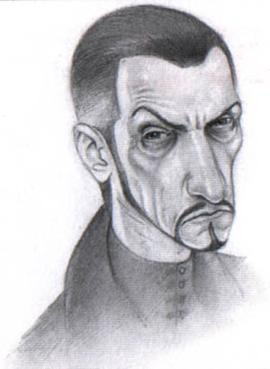
[Paul Kidby’s version of Vetinari from The Pratchett Portfolio.]
Admittedly, this is not the first time the Patrician appears; he’s been around since The Colour of Magic. It’s just that he’s now officially been named, and with that naming comes more and more elements of his personality. Unfortunately, this does not mean he’s now fully, entirely, um…Vetinari-like. (Is there a good word to describe what, exactly, Vetinari is? Let me know; I sure as hell can’t think of one. Machiavellian, sure, but there’s a lot more going on in there on top of that.) He looks like Vetinari. He’s got some very Vetinari-sounding traits. He’s even got Wuffles, and let’s be honest, ‘unreasoning love of dogs’ is one of Vetinari’s easiest-to-nail-down personality traits.
But he also dramatically misjudges a situation with the wizards and the newly-arrived Sourcerer, Coin, to the point where he is turned into a lizard for the rest of the book.
On the one hand, this is clearly an object lesson in human-slash-wizard nature that Vetinari takes firmly to heart, because I can’t think of any time in any other Discworld novel where the man fucks up quite that badly. One of Vetinari’s strongest traits is that he gets people, he understands them and what they want, and the reason he stays in power despite all efforts to the contrary is that he knows how to work that to his advantage. Future Vetinari is a lot more cautious and delicate with both his demands and his threats, he pretty much always gets what he wants, and he is never again forcibly transmogrified into a small, angry reptile. That’s character development, folks.
On the other hand, I think I’m so used to Vetinari as the all-knowing, puppeteering chess-master that he seems wildly out of character for the relatively short amount of time he shows up in Sourcery. I don’t even think I’m entirely wrong in that, because, again, Pratchett is still figuring out Vetinari as a character at this point. He’s been around since The Colour of Magic, yes, but this is the first time we see him as a real, concrete person and not a mere device to drive the plot.
Somehow, he doesn’t yet feel like the politician slash assassin that we’ll come to know and love. Sure, we all know he’s secretly got a hidden sense of humor and a live-and-let-die approach to the whimsical absurdity that pretty much runs the Disc, but he doesn’t make mistakes.
By the time we get to Guards! Guards!, though, Pratchett will pretty much have him on lock. Maybe we really just need to hold his brand of cynicism up next to Vimes’s in order to put them both in the right light.
But we’ve still got a few more books between then and now. Next up, we return to the witches: it’s the Shakespearean-inspired Wyrd Sisters!
* * * * * * * * * *
Side Notes:
Rincewind does exactly one (1) magic in this book, and I am very proud of him for it.
Something I missed on my last readthrough: the Luggage apparently coughed up the Ottavo after a couple days. Last I remembered, in The Light Fantastic, it had swallowed this most powerful grimoire on the Disc and showed no signs of ever giving it up. On the one hand, there’s nowhere safer on the Disc to store a reality-warping spellbook than inside a murderous suitcase, but on the other, Rincewind and his awful luck don’t really need that sort of risk following them around on hundreds of tiny legs.
This book has a really solid message: a person has to decide for themselves who and what they are. It repeats throughout a lot of the character arcs: Rincewind, Conina, Nigel, even Coin the Sourcerer.
Rincewind might not be great at magic, but he’s got the most common sense. For example: it’s not Rincewind’s magical powers that make him able to fly the magic carpet. It’s just that he’s the only one to notice that they’ve set it on the ground upside-down. I think this serves him better than actual magic would in most of his escapades.
Favorite Quotes:
“‘I meant,’ said Ipslore bitterly, ‘what is there in this world that truly makes living worthwhile?’ Death thought about it. CATS, he said eventually. CATS ARE NICE.”
“It was quite impossible to describe. Here is what it looked like. It looked like a piano sounds shortly after being dropped down a well. It tasted yellow, and it felt Paisley. It smelled like the total eclipse of the moon.”
“It’s vital to remember who you really are. It’s very important. It isn’t a good idea to rely on other people or things to do it for you, you see. They always get it wrong.”
“They suffered from the terrible delusion that something could be done. They seemed prepared to make the world the way they wanted it or die in the attempt, and the trouble with dying in the attempt was that you died in the attempt.”
“There are eight levels of wizardry on the Disc; after sixteen years Rincewind has failed to achieve even level one. In fact it is considered opinion of some of his tutors that he is incapable even of achieving level zero, which most normal people are born at; to put it another way, it has been suggested that when Rincewind dies the average occult ability of the human race will actually go up by a fraction.”
“Rincewind rather enjoyed times like this. They convinced him that he wasn’t mad because, if he was mad, that left no word at all to describe some of the people he met.”
“Despite rumor, Death isn’t cruel—merely terribly, terribly good at his job.”
“The truth isn’t easily pinned to a page. In the bathtub of history the truth is harder to hold than the soap, and much more difficult to find.”
“The day had, in fact, reached that gentle point when it was too late for housebreaking and too early for burglary.”
8 notes
·
View notes